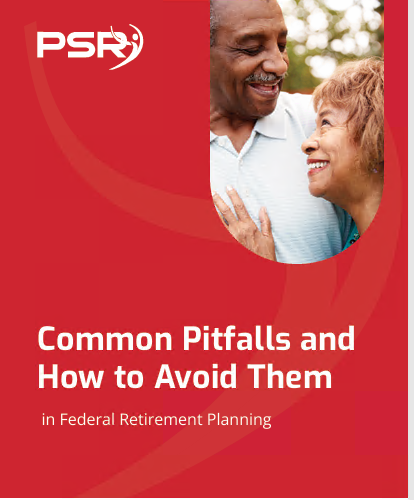Key Takeaways
- Protecting your federal pension during divorce requires careful planning and legal steps to minimize the financial impact on your retirement benefits.
- Understanding your pension rights and federal rules can help you safeguard your financial future as you navigate the divorce process.
Divorce and Federal Pensions
Divorce can bring a wave of emotional and financial challenges, especially for federal employees who have worked hard to build their pensions. Whether you’re part of the Civil Service Retirement System (CSRS) or the Federal Employees Retirement System (FERS)
- Also Read: Divorce and Your Federal Pension—What Happens When You Split Assets and How It Could Affect Your TSP
- Also Read: What Happens to Your Federal Benefits After Divorce? Here’s the Lowdown
- Also Read: The Best FEHB Plans for 2025: Which One Fits Your Lifestyle and Budget the Best?
In this article, we’ll explore key steps and strategies to help you protect your pension during and after divorce, ensuring that your financial future remains secure.
How Does Divorce Impact Your Federal Pension?
A common question among federal employees going through a divorce is, “How will this affect my pension?” The answer largely depends on the divorce agreement, the federal pension system you’re part of, and the laws in your state.
Under federal law, pensions are considered marital property, which means they may be subject to division during divorce proceedings. This includes both the FERS and CSRS pensions. In many cases, the court will issue a Court Order Acceptable for Processing (COAP), which specifies how your pension will be divided between you and your ex-spouse. It’s important to note that the Office of Personnel Management (OPM) follows these court orders strictly.
Timing Is Key: Protecting Your Pension Early
One of the most important things to remember when it comes to protecting your federal pension is that timing is critical. The earlier you start preparing, the better.
If you’re already aware that divorce is on the horizon, it’s wise to consult with a legal expert who understands federal pensions. They can help you draft a Qualified Domestic Relations Order (QDRO), which is a key legal document that will outline how your pension is to be split. Having this in place before divorce proceedings begin can save you a lot of stress and protect a significant portion of your retirement.
The QDRO must be carefully worded and in compliance with federal regulations to ensure that it is accepted by the OPM. A small mistake in this document can result in unfavorable consequences down the line, including the potential loss of pension benefits.
What Happens If You Don’t Take Action?
Failure to protect your pension during a divorce could result in your ex-spouse receiving a significant share of your retirement benefits, even after you’ve stopped working. Depending on how long you were married and your pension’s value, this could seriously reduce your retirement income.
For example, if you were married for 20 years or more while working as a federal employee, the court might award your ex-spouse up to 50% of your pension benefits. Imagine the impact that could have on your ability to retire comfortably.
Strategies to Keep Your Pension Intact
Protecting your pension doesn’t have to be a losing battle. Here are a few strategies that can help safeguard your hard-earned retirement:
1. Negotiation and Trade-Offs
In many cases, it’s possible to negotiate with your spouse during the divorce settlement. Instead of dividing your pension, you might offer other assets, such as property or investments, in exchange for keeping your pension intact. For this to work, you need to have a clear understanding of the total value of your pension and be ready to compromise on other financial fronts.
2. Consider Waiving Survivor Benefits
If your spouse is entitled to survivor benefits after your passing, you may want to consider waiving this right during divorce negotiations. Survivor benefits could significantly reduce the amount of your monthly pension, and while this may sound like a tough choice, it can provide you with more income while you’re still alive. Keep in mind that waiving survivor benefits must be handled carefully and require formal documentation, such as a properly filed waiver with OPM.
3. Explore Different Pension Splitting Formulas
Not all pension splits are 50-50. In some cases, the division of pension benefits can be negotiated based on the length of the marriage, your spouse’s contribution to your career, and other factors. For instance, if your marriage was relatively short, you might be able to negotiate for a smaller percentage of your pension to be allocated to your ex-spouse.
4. Seek Legal and Financial Advice
Divorce involving federal pensions is a complex process that requires specialized legal and financial advice. It’s crucial to work with professionals who have experience with federal retirement systems to ensure your pension is protected. They can help you explore options, understand the legal implications of the divorce, and guide you through negotiations to minimize the impact on your financial future.
Can You Avoid Pension Division Altogether?
You might be wondering, “Is there a way to avoid dividing my pension altogether?” While avoiding pension division entirely is rare, it can happen if you and your spouse agree to it during negotiations. This is most common in cases where you’re willing to give up other marital assets, such as real estate, to maintain your full pension.
However, it’s important to understand that federal law still requires a Court Order to outline how your pension will be handled in the divorce. Even if you and your spouse agree not to split the pension, this agreement must be legally documented to avoid future disputes.
Understanding Survivor Benefits: Do They Apply?
One crucial element to consider is whether your ex-spouse is entitled to survivor benefits under your federal pension. These benefits ensure that your ex-spouse will continue to receive part of your pension after your death. If the court awards your ex-spouse survivor benefits, it could further reduce your overall pension amount.
As mentioned earlier, you may be able to waive survivor benefits during the divorce settlement. However, this requires careful consideration, as it may affect other aspects of your divorce agreement.
Long-Term Planning for Your Pension
To ensure long-term financial stability, consider your future pension payments and how they’ll be affected by divorce. Are you close to retirement, or do you have many years left in the workforce? The earlier you address these questions, the better positioned you’ll be to protect your pension. By keeping an eye on your pension plan and knowing how to act during a divorce, you can safeguard a significant part of your retirement income.
It’s also worth keeping in mind that once you retire, any COAP or QDRO becomes final. This means that after the pension benefits are divided and start being paid out, there’s little you can do to change the terms. Planning well in advance can help ensure that you retain as much of your pension as possible.
Secure Your Federal Pension Before It’s Too Late
Divorce is never easy, but by taking steps to protect your federal pension early, you can secure your financial future. Don’t wait until the last minute to figure out how divorce will impact your retirement. By consulting with professionals, understanding federal pension rules, and negotiating smartly, you can minimize the financial damage and ensure a more stable retirement.












